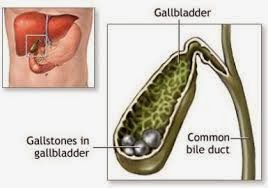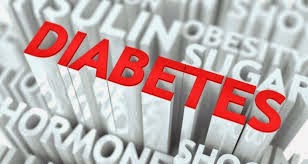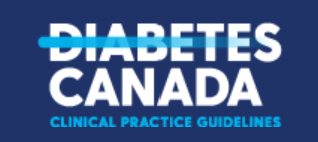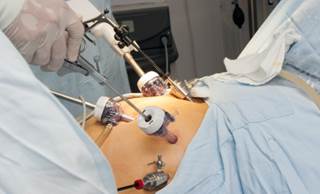As for everything in life, weight loss too has its pros and cons. While the health benefits of weight loss are numerous and powerful, there is an increased risk of gallstone formation, particularly if the weight loss is fast.
Gallstones are very common, being present in 17% of women and 8% of men (most don’t know that they have them!). Bile, which is the digestive juice made by the liver and stored in the gallbladder, is composed of bile acids, which are made by the liver from cholesterol. Bile also contains cholesterol, phospholipids, proteins and electrolytes. The bile is usually able to carry cholesterol produced by the liver out into the intestine in a liquid form, but if the cholesterol concentration gets too high, or the contraction of the gallbladder gets too sluggish, cholesterol crystals develop and gallstones form.
Obesity is a risk factor for gallstones for a number of reasons. There is a larger pool of cholesterol moving around in the body, and the liver’s ability to convert cholesterol into bile acids is impaired (thus, more cholesterol relative to bile acids in the bile). Gallbladder contractions are also more sluggish in obesity, which may be related to insulin resistance and resistance to a satiety (sense of fullness) hormone called leptin. Diabetes, prediabetes, use of the birth control pill, and hormone replacement therapy are other risk factors for gallstone disease. Genetics also play a part in gallstone risk, which is an area that we are just starting to learn about.
Within the first 4 months of moderate weight loss on a diet, the risk of gallstones is as high as 25% (though most of these will be without symptoms). With faster and larger weight loss, the risk is higher: as many as 71% of patients will have gallstone formation by 1 year after bariatric (obesity) surgery. About 40% of people developing gallstones after bariatric surgery will have symptoms; for those who don’t have symptoms, about half will disappear by 2 years after surgery.
Gallstones form during weight loss because cholesterol content of bile increases during weight loss, as fats are being moved out of fat tissue and being utilized or disposed of by the body. If calorie intake is too low, bile acid production by the liver may drop as well. Also, during rapid weight loss, the gallbladder contractions become more sluggish.
So, what are the take home messages here? Again, remember that the health benefits of weight loss are great and numerous, and far outweigh the potential risk of gallstone formation. That being said, losing weight at a reasonable rate (max 1-2 lb per week) helps to prevent the higher risk of gallstones that comes with too rapid a rate of weight loss. For those who will be losing weight quickly with bariatric surgery, your surgeon may recommend that your gallbladder be removed at the time of surgery if you already have gallstones. If not, a medication called URSO (ursodeoxycholic acid) may be recommended, which has been shown to reduce the risk of gallstone formation after gastric bypass surgery by 60%.











